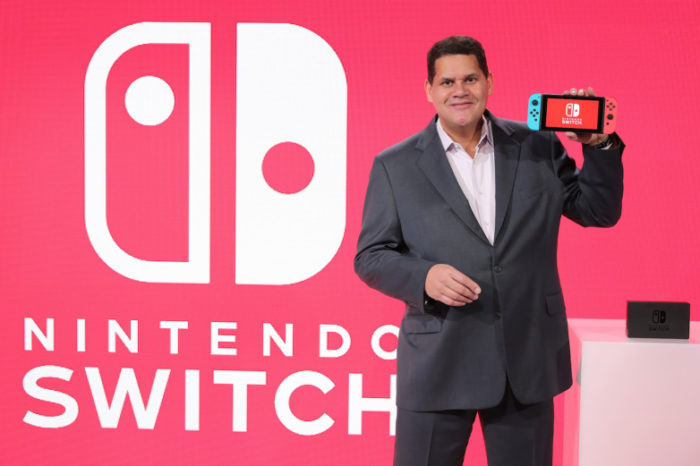Nearly five months have passed since the Nintendo Switch launched worldwide, and the latest earnings report from the company shows a solid start for the new hardware. As of June 30, Nintendo has sold 4.7 million Switches, according to the report released to investors earlier this week. The strong showing is a welcome sight for a company that struggled in terms of home console sales in the previous generation. The Wii U’s lifetime sales as of the end of 2016 stood at 13.56 million units, making it Nintendo’s worst selling console of all-time. But do the strong numbers from the first few months of sales mean that Nintendo can consider the handheld/home console hybrid a success?
The Switch has had an uphill battle to fight since launching in March. While its predecessor came hot off the heels of the original Wii, one of gaming’s most purchased consoles, the Switch’s announcement and reveal came at a time where public confidence in Nintendo as a home console brand was arguably at an all-time low. Outlets wrote think pieces about Nintendo possibly exiting the home console space if the Switch was a commercial failure. Podcasters imagined a future where Nintendo started making games as a 3rd party publisher.

After Nintendo revealed the Switch’s $299 price point, share prices dropped as investors felt the cost of the console was too high. Fans worried that Nintendo’s unique concept for the Switch meant little given that the company had developed yet another underpowered console relative to the competition. A console launch is an exciting moment for any company, but for Nintendo, the launch felt more “do or die” than any previous system. Would the company’s gamble on yet another innovative concept work out?
This new report shows that the gamble is paying off. By comparison, the Wii U sold 3.45 million units in its first five months, 27% less than the Switch. While the gap already shows a sizable lead for the Switch’s sales, the numbers do not tell the whole story. The Wii U launched on November 18, 2012, in North America, placing it firmly within the holiday window — a time where sales of gaming hardware generally increase. The Switch’s sales have taken place during spring and summer, seasons that most of the gaming industry considers weaker in terms of hardware and software sales.
The strong sales numbers also come at a time when Nintendo struggled to maintain stock of the console. Since its launch, fans have waited in lines to buy the restock supplies, pre-ordered expensive bundles from retailers, purchased outrageously priced systems from scalpers, and built entire websites and apps to track the console’s stock history. Even while the company still struggles to maintain, Q1 2017 sales show that the company sold 2 million units. Its predecessor moved less than half a million units its 3rd-5th months on the market despite no such stock shortages.
The narrative surrounding the Switch’s commercial and critical reception following launch is far different than the Wii U’s. In early 2013, outlets wrote pieces calling the console’s launch a bit rocky, dismal, and grim. Paralleled to the hopeful outlook on the Switch — which is expected to almost match the Wii U’s sales of 13 million by the end of fiscal 2017 — it is safe to say that Nintendo’s executives are probably feeling much better about their position now than they were at this time in the Wii U’s life.

For the time, Nintendo’s management of their most beloved first-party IP has been strong. Zelda launching day and date with the Switch proved a meteoric success with the game seeing an attach rate of over 80% on the console. Mario Kart 8 had an almost identical strong showing, and the publisher’s smash-hit shooter Splatoon should see similar results following the release of its sequel on the Switch. Newcomer, Arms, sold 1.18 million units in the two weeks between its launch and the report’s cut off date.
Nintendo has always had a ravenous fan base when it comes to buying Nintendo IP, and the Switch will see guaranteed spikes in sales when Mario Odyssey, Pokken Tournament DX, and Fire Emblem Warriors launch. In the more distant future, Metroid 4 and the Pokemon RPG will assist the Switch with succeeding over its predecessor.
But none of these numbers make the Switch a guaranteed home run. Projections and realized sales are two entirely different discussions. For Nintendo to succeed, they must maintain the momentum for the entirety of the Switch’s life. Console success is a marathon, not a sprint, and unforeseen mistakes can prove costly in the long run.
For all of its strengths, Nintendo must focus on areas of weakness in order to keep the Switch from fizzling out like the Wii U. How will they continue to improve the online experience now that it will charge for the service in 2018? Will third-parties remain faithful in releasing games allowing for the Switch to have a more fleshed out library? Will they bring back the virtual console? The answers to these questions remain to be seen and are equally as important to the console’s success as preliminary sales. Is the Switch already safe from failure? No, but it’s in a much better position than the Wii U was at the same stage.





Published: Jul 28, 2017 10:30 am